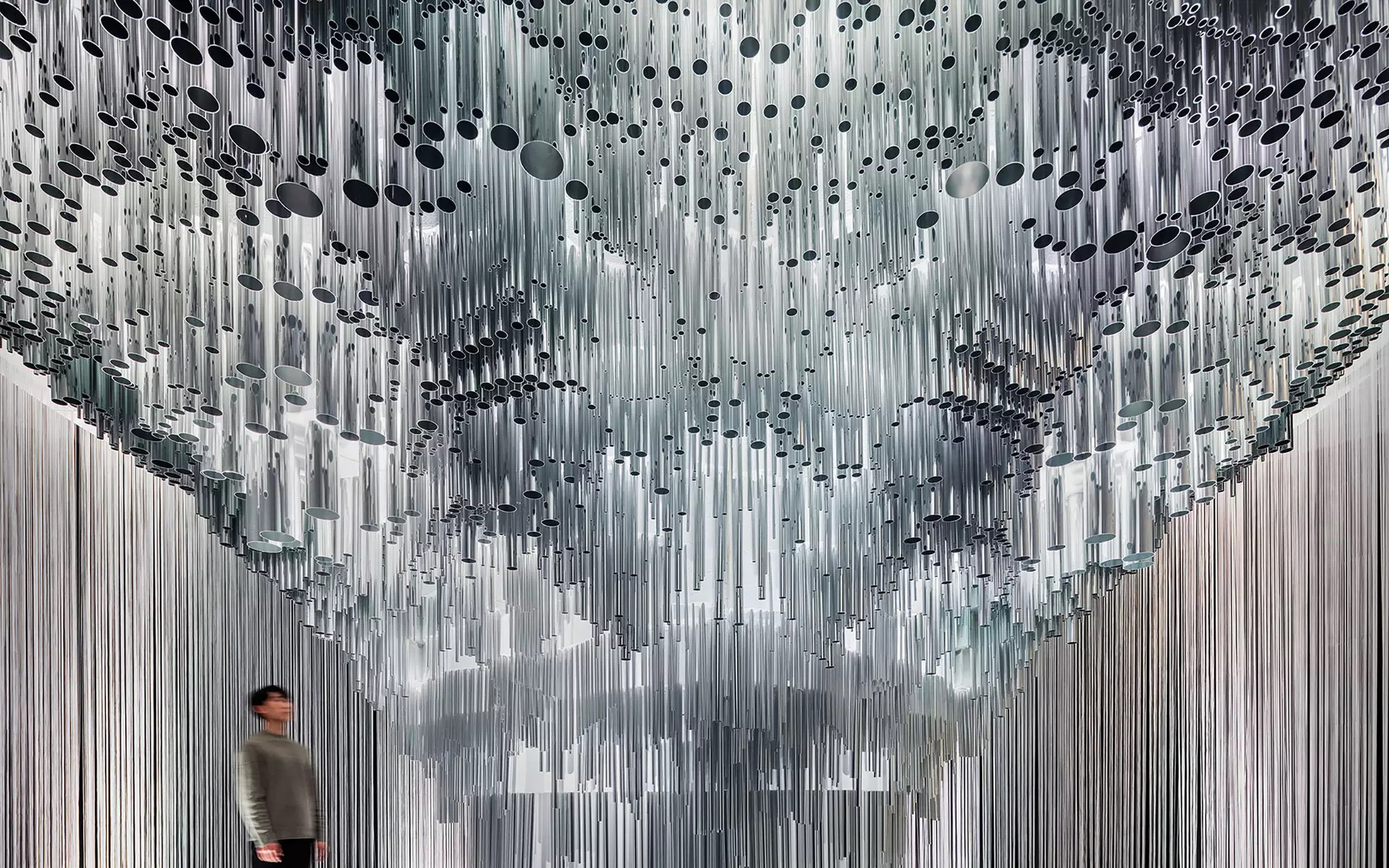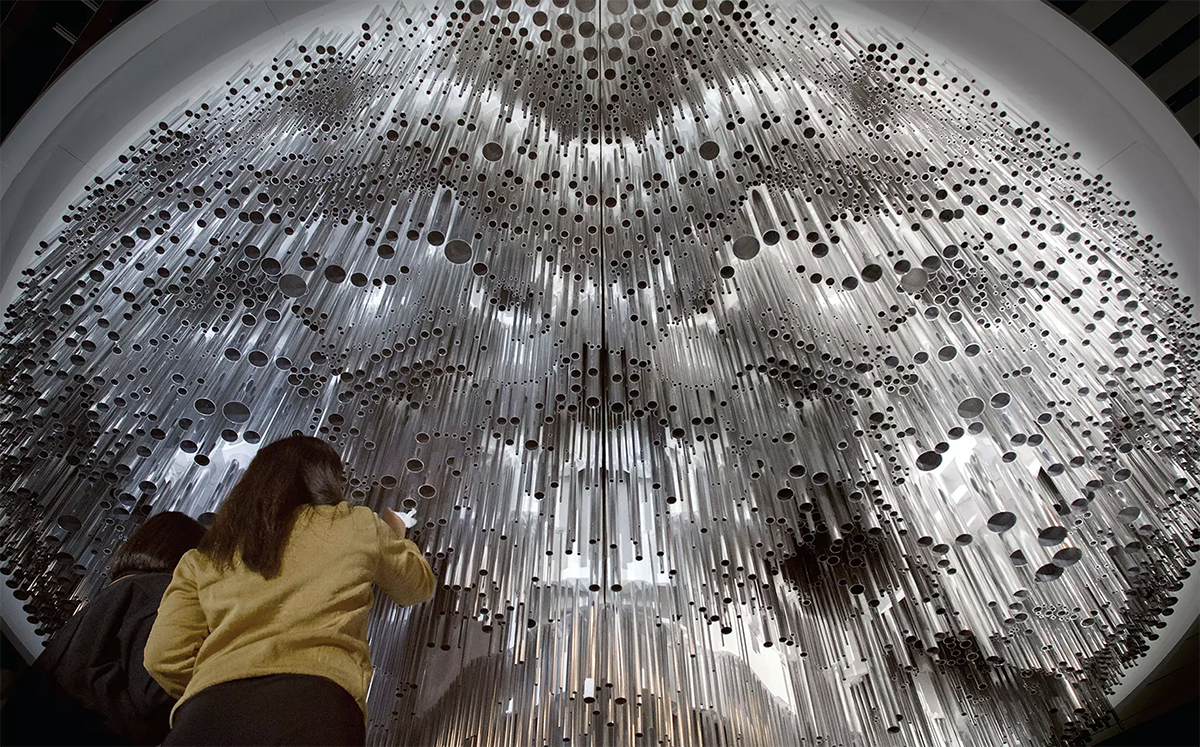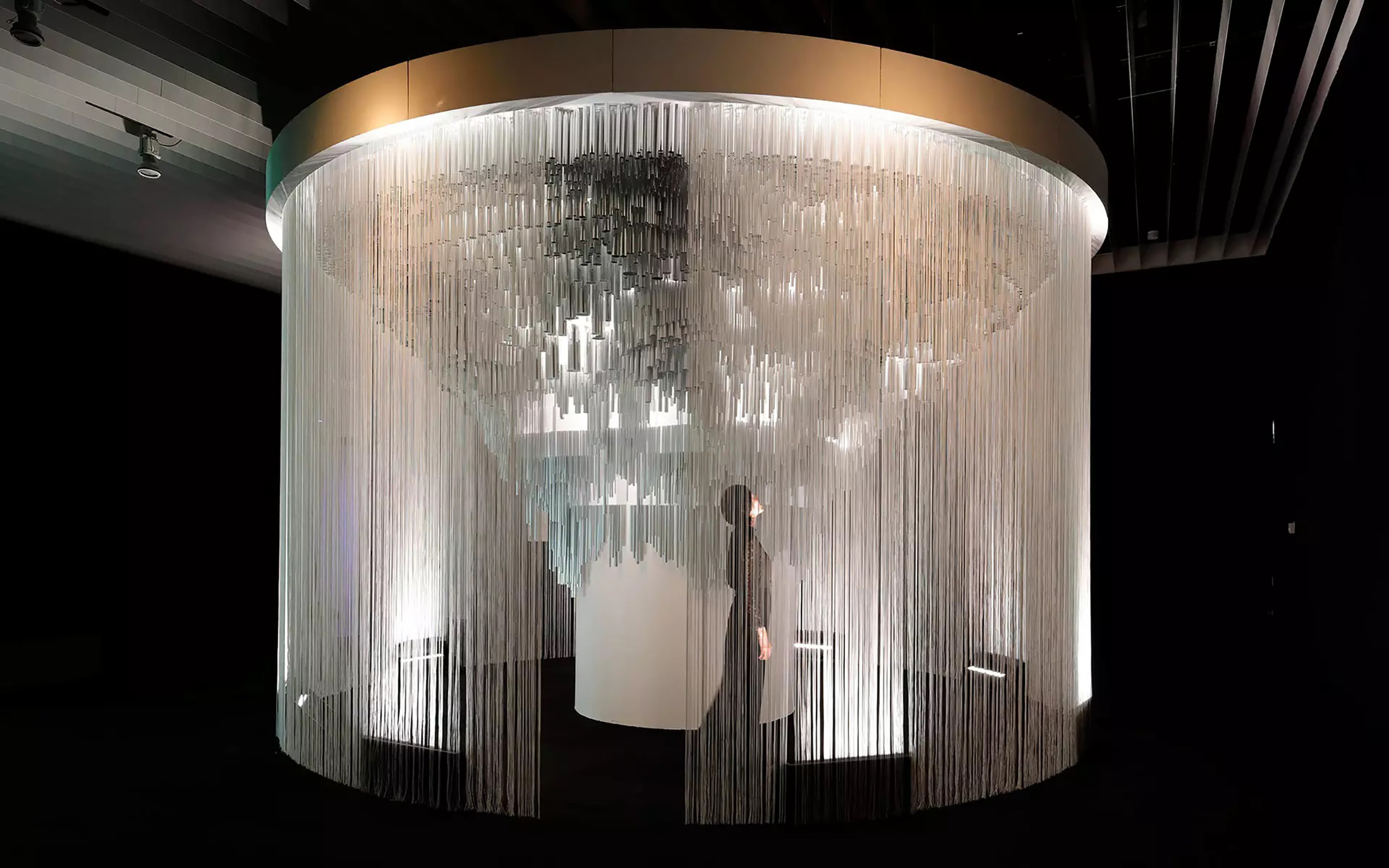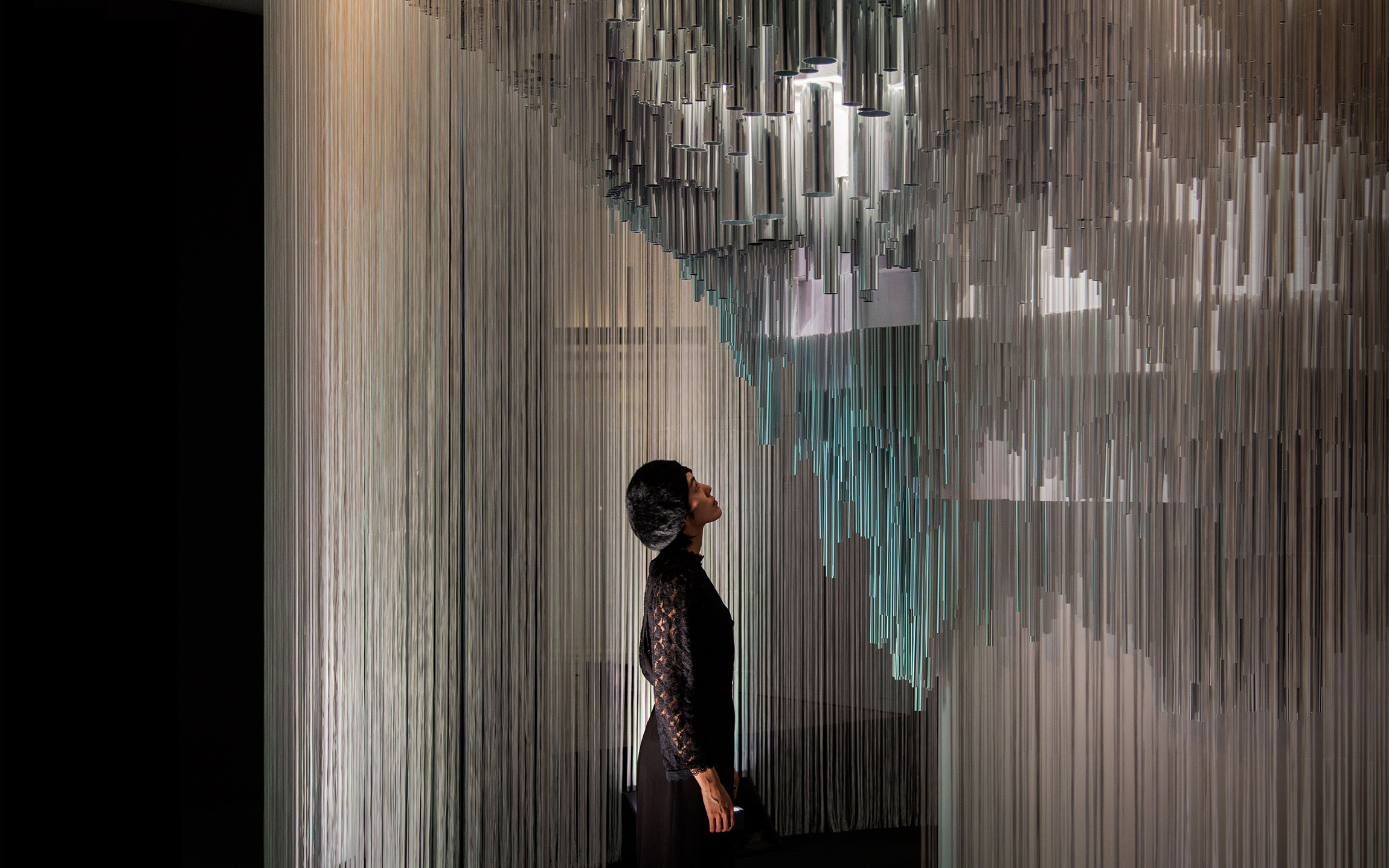
How can these algorithmic muqarnas be brought out of the computer into the real world? For their 2019-2020 Future and the Arts exhibition at Mori Art Museum in Tokyo, the curators commissioned a Muqarna Mutation: an algorithmically designed, robotically fabricated, 6-meter wide muqarna to be installed in a central exhibition room. The project explores how - in the context of the fourth industrial revolution - computation and robotic fabrication can bring the splendor of such a rule-based geometric art into the future.
Muqarna Mutation uses the selective subdivision algorithm described above to produce a geometry that connects a massive pre-existing column at the center of an exhibition room to the room's ceiling. The algorithm generates hundreds of thousands of tiles set among sixteen tiers to create an extragavant ornamental transition from column to ceiling.
A mass-produced industrial product, extruded aluminum profiles, is turned into an elaborate ornamental structure through a radical use of information technology: an algorithm successively defines an intricate form, and robots refine and ennoble simple tube elements into an ephemeral ensemble. The resulting structure transcends the historical typology into something new and unseen.
Standing beneath the muqarna, visitors are struck by a mix of bewilderment and curiosity: a disorientating sensory overload partially obscures the underlying compositional logic. Patterns are readily discernible as one changes perspectives, only to disappear again amidst the endless reflections.
Artist | Michael Hansmeyer
https://www.michael-hansmeyer.com
Fabrication Team |
Lead:
Yu-Ting Sheng
Shih-Yuan Wang
Meng Hao
Structural support:
Chen-Tung Chen (YUMU)
Kuan-Fan Chen (FA.S Studio)
Assistants:
Fei-Fan Sung, Che-Wei Lin, Wei-Tse Hung, Yu-Hsuan Pang, Chung-Chieh Cheng, Yi-Heng Lu, Nai-Wei Lai , Chieh-I Liu, Chang-Chin Lee, Shih-Kai Fan, Yu-Syuan Wei, Ching-Yun Tseng, Ying-Yu Chen, Yu-Wei Cheng , Qin-Fei Liu, Yen Heng Cheng
Photographer | Kyungsub Shin
Muqarna Mutation uses the selective subdivision algorithm described above to produce a geometry that connects a massive pre-existing column at the center of an exhibition room to the room's ceiling. The algorithm generates hundreds of thousands of tiles set among sixteen tiers to create an extragavant ornamental transition from column to ceiling.
A mass-produced industrial product, extruded aluminum profiles, is turned into an elaborate ornamental structure through a radical use of information technology: an algorithm successively defines an intricate form, and robots refine and ennoble simple tube elements into an ephemeral ensemble. The resulting structure transcends the historical typology into something new and unseen.
Standing beneath the muqarna, visitors are struck by a mix of bewilderment and curiosity: a disorientating sensory overload partially obscures the underlying compositional logic. Patterns are readily discernible as one changes perspectives, only to disappear again amidst the endless reflections.
Artist | Michael Hansmeyer
https://www.michael-hansmeyer.com
Fabrication Team |
Lead:
Yu-Ting Sheng
Shih-Yuan Wang
Meng Hao
Structural support:
Chen-Tung Chen (YUMU)
Kuan-Fan Chen (FA.S Studio)
Assistants:
Fei-Fan Sung, Che-Wei Lin, Wei-Tse Hung, Yu-Hsuan Pang, Chung-Chieh Cheng, Yi-Heng Lu, Nai-Wei Lai , Chieh-I Liu, Chang-Chin Lee, Shih-Kai Fan, Yu-Syuan Wei, Ching-Yun Tseng, Ying-Yu Chen, Yu-Wei Cheng , Qin-Fei Liu, Yen Heng Cheng
Photographer | Kyungsub Shin






ABOUT
ROSO是一個前衛且跨學科的研究團隊。實驗室的主要目標為利用創新的機器人技術與運算設計思維,提供智能建造的流程,並利用當今各式各樣的新興科技相互碰撞下,開啟更多〈建築的想像力〉與〈建造的可能性〉之討論。
ROSO is an interdisciplinary research team. The main objective of the laboratory is to use innovative robotics technology and computational design thinking to provide diverse intelligent construction processes and solutions. Through the collision of various emerging technologies, ROSO aims to open up discussions on "the imagination of architecture" and "the possibilities of construction.
ROSO是一個前衛且跨學科的研究團隊。實驗室的主要目標為利用創新的機器人技術與運算設計思維,提供智能建造的流程,並利用當今各式各樣的新興科技相互碰撞下,開啟更多〈建築的想像力〉與〈建造的可能性〉之討論。
ROSO is an interdisciplinary research team. The main objective of the laboratory is to use innovative robotics technology and computational design thinking to provide diverse intelligent construction processes and solutions. Through the collision of various emerging technologies, ROSO aims to open up discussions on "the imagination of architecture" and "the possibilities of construction.
